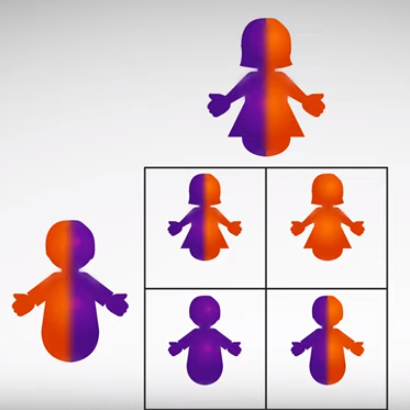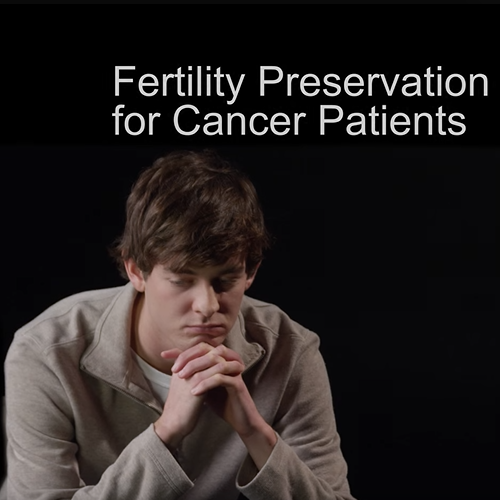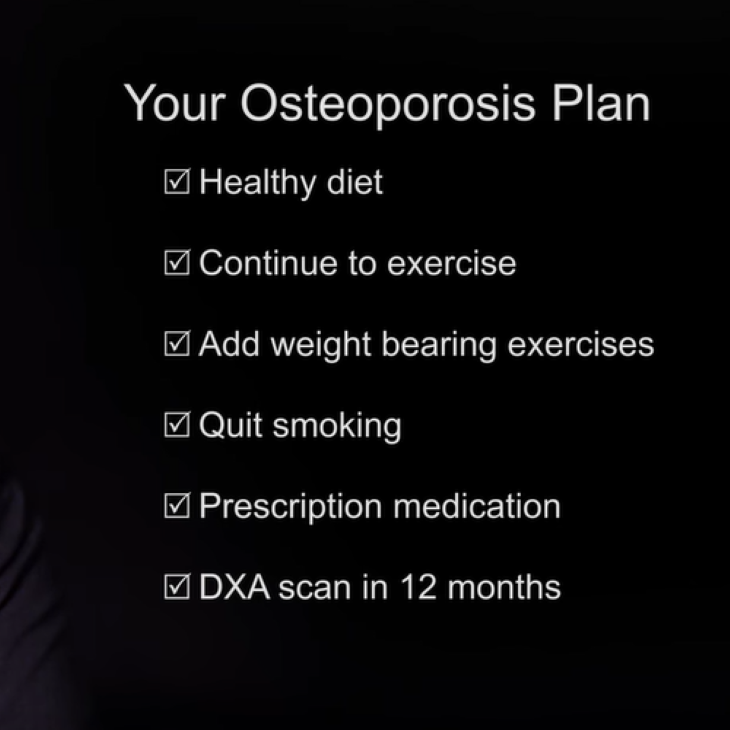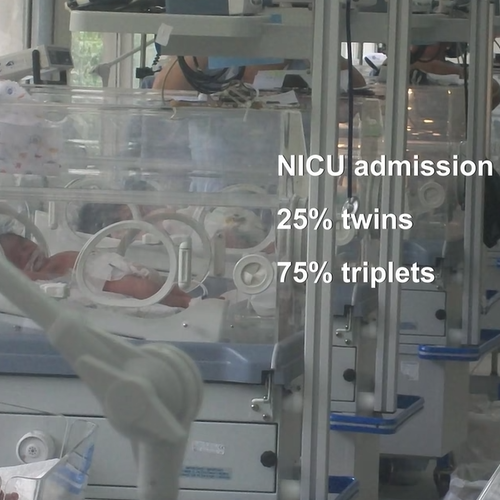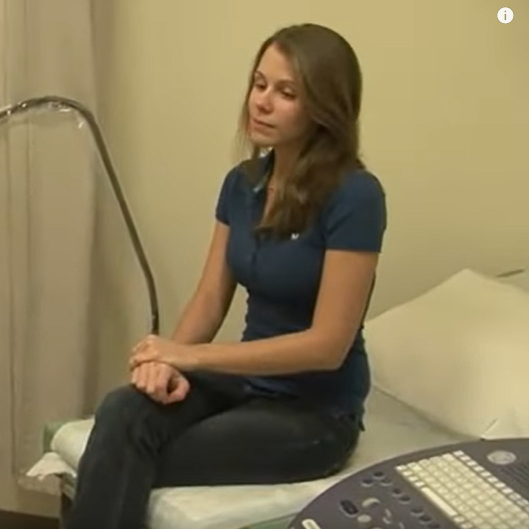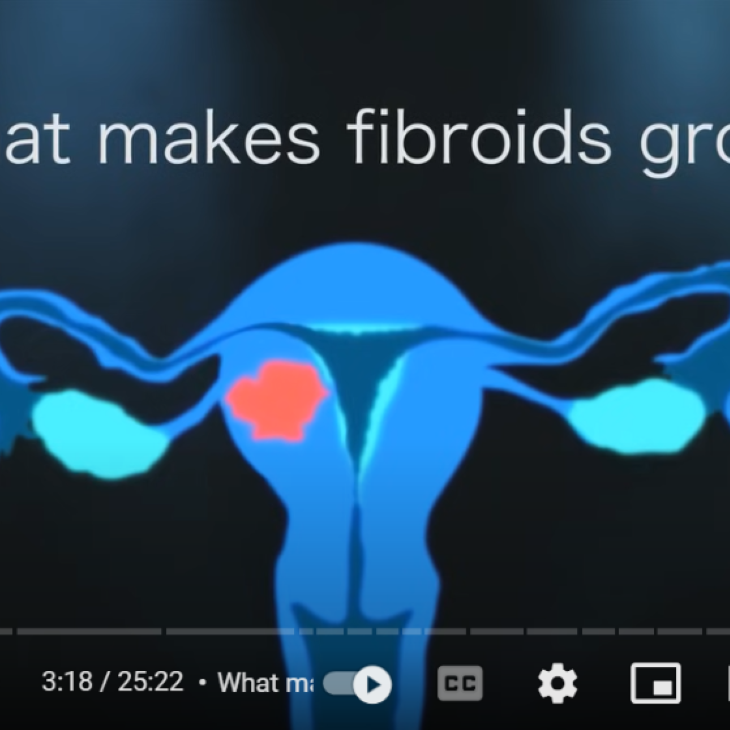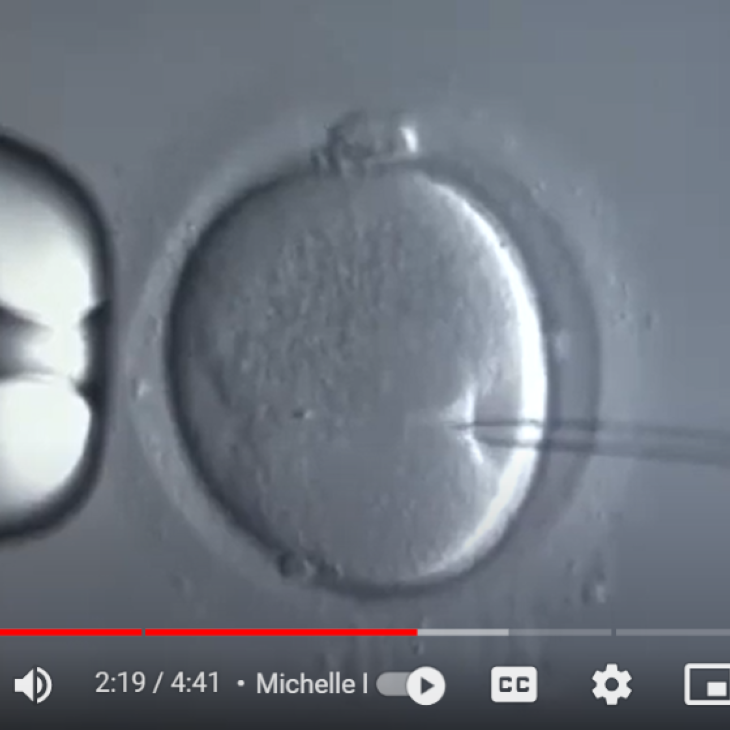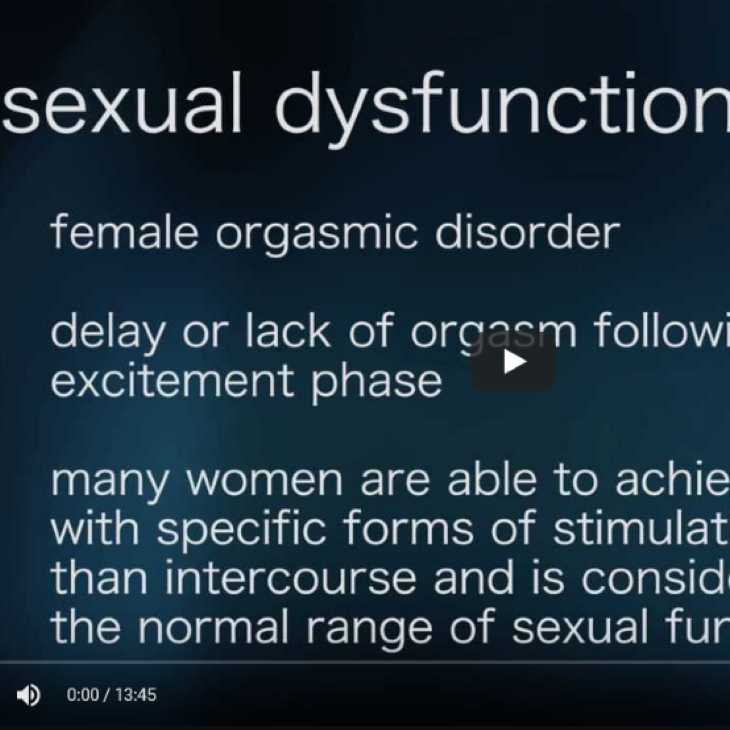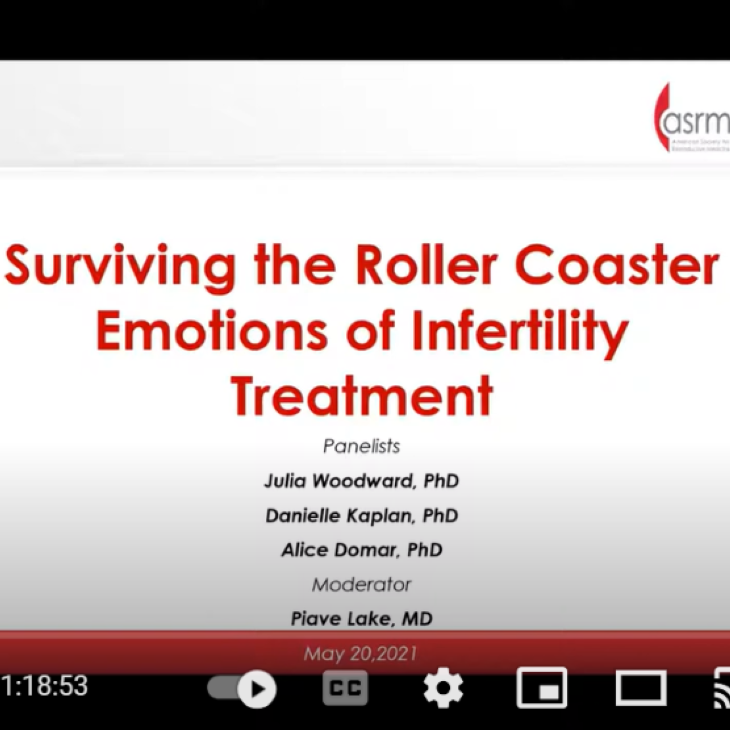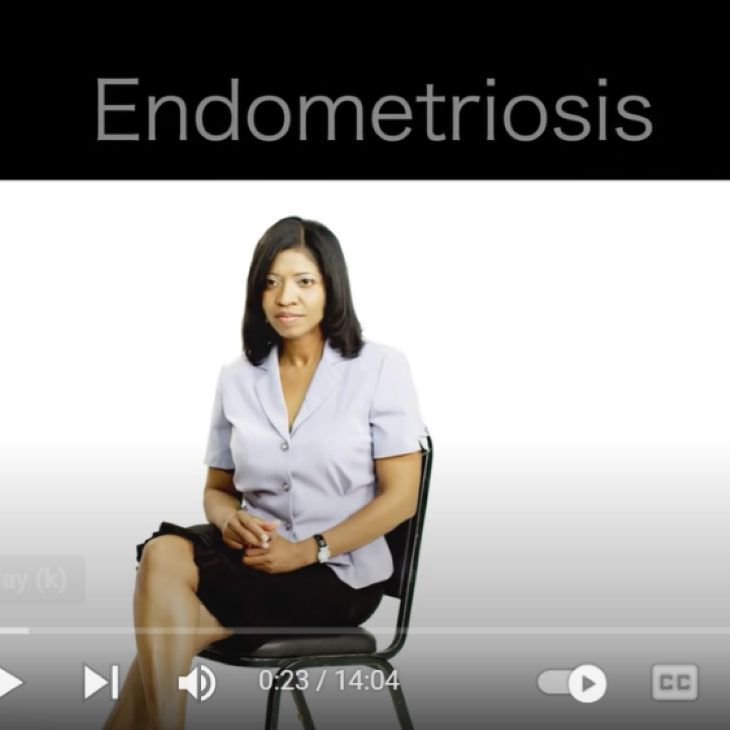Causes of Female Infertility
Transcript
Dr. Roger Lobo, of the American Society for Reproductive Medicine explains the causes of female infertility.
Hi, I'm Dr. Roger Lobo from the American Society for Reproductive Medicine. Today, we're talking about the causes of female infertility.
There are three main causes of female infertility. Problems with ovulation, structural problems, and unexplained infertility.
The most common cause of female infertility has to do with ovulation which is a process during which an egg is released. Up to a third of female infertility cases are due to ovulation problems. For many of these women age plays a role. Another condition is normal female aging. As women get older sometimes the pattern with which a woman ovulates might be altered and that can also lead to more difficulty conceiving. Aging leads to infertility because of changing hormones and decreasing numbers of eggs. In addition, eating disorders and excessive stress and exercise can negatively affect hormones and result in anovulation, which means not releasing eggs.
Another factor is structural problems in a woman's reproductive tract typically affecting the fallopian tubes or uterus. This can interfere with the transporting and implantation of the fertilized egg. Some women are born with problems in these organs such as an abnormally shaped uterus. Others may have fibroids which are benign tumors growing in the walls of the uterus. This can affect the ability of the embryo to implant. But damage can also occur with conditions such as sexually transmitted diseases, infections, and previous surgeries leading to blocked and/or scarred fallopian tubes. Scar tissue can also involve the ovary and other pubic organs. Endometriosis is a condition in which the tissues normally found only inside the uterus are deposited in other places in the woman's body. This process affects many aspects of reproductive function and typically causes pelvic pain as well.
The last cause is, unfortunately, the most frustrating because it cannot be explained. For some women, the cause of infertility cannot be found. However, research is being conducted to find answers. Finally, it is important to remember that for many women infertility is often due to more than one cause.
To learn more, check out our other videos on infertility, including Causes of Male Infertility.
Videos
Resources For You
Female Fertility
SART Fertility Experts - Fertility Myths and Realities for Black Women
Black women are more likely to experience infertility and less likely to seek and receive timely treatment. Listen to the EpisodeSART Fertility Experts - Wellness and Fertility: Diet, Sleep and Exercise
Drs. Timothy Hickman and Rashmi Kudesia discuss the links between lifestyle and fertility. Listen to the EpisodeSART Fertility Experts - Preconception Counseling
This podcast episode covers the topic of preconception counseling. Listen to the EpisodeFemale Fertility Journey
If you've been trying to get pregnant for more than a year, you may have infertility. Infertility is a disease of the reproductive system that impairs one of the body's most basic functions: the conception of children.
View the Patient JourneyStress and infertility
It is not clear how exactly stress impacts fertility. Read the Fact SheetOptimizing Natural Fertility
Before attempting pregnancy, a woman should make sure she is healthy enough for pregnancy by adopting a healthier lifestyle and taking prenatal vitamins. If she has a medical or genetic condition or risk of one, she should seek advice from a medical professional before conceiving (becoming pregnant) View the fact sheetAm I Ovulating?
Ovulation is the release of an egg from a woman’s ovaries and is essential for getting pregnant. View the Fact SheetAbnormalities of the Female Reproductive Tract (Müllerian Anomalies)
Sometimes the uterus and fallopian tubes may not form like they should. These malformations are called müllerian anomalies or defects. Müllerian anomalies may make it difficult or impossible to become pregnant. View the Fact SheetConditions Treated with Surgery on the Fallopian Tubes and Ovaries
Surgery can be used to treat problems with the ovaries or fallopian tubes, such as cysts, endometriosis, or infections. View the Fact SheetDiagnostic Testing for Infertility
An evaluation of a woman for infertility is appropriate for women who have not become pregnant after having 12 months of regular, unprotected intercourse. View the Fact SheetDilation and Curettage (D&C)
“Dilation and curettage” (D&C) is a short surgical procedure that removes tissue from your uterus (womb). You may need this procedure if you have unexplained or abnormal bleeding or if you have delivered a baby and placental tissue remains in your womb. View the Fact SheetEvaluation of the Uterus
If you haven’t been able to get pregnant after trying for 6 months, some tests can be done to help find the reason. Your doctor may test your hormone levels, your partner’s sperm, and your reproductive organs (ovaries, fallopian tubes, and uterus [womb]). View the Fact SheetFemale Cancers, Cryopreservation, and Fertility
Yes! New technology lets your doctor remove and freeze eggs, fertilized eggs (embryos), or ovarian tissue before treating your cancer. This way, you may be able to have children after your treatment. View the Fact SheetFertility Drugs And The Risk of Multiple Births
Infertility treatments that cause multiple eggs to develop make it more likely that you will become pregnant with twins, triplets, or more. This is called multiple gestation. View the Fact SheetOvulation Detection
Ovulation, the release of an egg from its follicle in one of a woman’s two ovaries, is one of the most important factors in conceiving a child. View the fact sheetWeight and fertility
One of the easiest ways to determine if you are underweight or overweight is to calculate your body mass index (BMI). View the fact sheetHypothyroidism and pregnancy: what should I know?
Hypothyroidism (underactive thyroid) is when the thyroid gland produces less thyroid hormone than it should. View the Fact SheetSART Fertility Experts - Endometriosis
Endometriosis is a condition that can affect many facets of a person’s life, from pelvic pain to struggles with infertility. Listen to the EpisodeSART Fertility Experts - IVF: Cycles of Hope and Heartbreak
Does stress cause infertility or is it the other way round? Listen to the EpisodeWhat is Recurrent Pregnancy Loss (RPL)?
This is a condition when a woman has 2 or more clinical pregnancy losses (miscarriages) before the pregnancies reach 20 weeks. View the fact sheetSART Fertility Experts - Fibroids and Fertility
Fibroids and their impact on fertility are discussed in this episode featuring Dr. Elizabeth Stewart, interviewed by host Dr. Brooke Rossi. Listen to the EpisodeInfertility: an Overview (booklet)
Infertility is typically defined as the inability to achieve pregnancy after one year of unprotected intercourse. View the bookletInfertility
Infertility is the result of a disease (an interruption, cessation, or disorder of body functions, systems, or organs) of the male or female reproductive tract which prevents the conception of a child or the ability to carry a pregnancy to delivery. Watch VideoBasic Infertility Evaluation
Dr. Roger Lobo of the American Society for Reproductive Medicine discusses the various methods to evaluate infertility. Watch VideoFibroid Tumors
An educational video that answers patient questions about the causes, symptoms, diagnosis and management of uterine fibroids. Watch VideoInfertility Treatments
Dr. Roger Lobo of the American Society for Reproductive Medicine discusses the various treatments for infertility. Watch VideoUnderstanding Fertility
In this video series, Dr. Roger Lobo explains the basics of infertility, including causes, treatments and coping methods. Watch VideoSurviving the Roller Coaster Emotions of Infertility Treatment
The experience of infertility is a rollercoaster of hope and disappointment. Treatment presents an opportunity for hope as well as a new set of challenges. Watch VideoEndometriosis (booklet)
Women with endometriosis may experience infertility, pelvic pain, or both. This booklet will describe options for diagnosing and treating pain or infertility that may be attributed to endometriosis. View the BookletCauses of Female Infertility
Dr. Roger Lobo, of the American Society for Reproductive Medicine explains the causes of female infertility. Watch VideoFAQ About Infertility
Infertility is not an inconvenience; it's a disease of the reproductive system that impairs the body's ability to perform the basic function of reproduction. Learn the factsFemale Fertility Infographics
ASRM has prepared infographics to illustrate the subject of Female Fertility better. View the InfographicsOvarian Reserve Infographics
ASRM has prepared infographics to illustrate the subject of Ovarian Reserve better. View the InfographicsEndometriosis
Endometriosis and Infertility: Can Surgery Help?
Endometriosis is when tissue is found outside the uterus that appears similar to the lining of the uterus (endometrium). Endometriosis may grow on the outside of your uterus, ovaries, and tubes and even on your bladder or intestines. This tissue can irritate structures that it touches, causing pain and adhesions (scar tissue) on these organs. View the Fact SheetNoncontraceptive Benefits of Birth Control Pills
Most women will use birth control pills at some time in their lives. View the fact sheetManaging Pelvic Pain
Many women have pain in their pelvis (lower part of the belly) from time to time, usually during their period. View the fact sheetWhat do I need to know about conceiving after surgery on my Fallopian tubes?
Fallopian tubes connect the ovary (where the eggs are stored and grow) to the uterus (womb), where the fertilized egg develops into a baby (fetus). View the fact sheetHydrosalpinx
The fallopian tubes are attached to the uterus (womb) on the left and right sides. View the Fact SheetSART Fertility Experts - Endometriosis
Endometriosis is a condition that can affect many facets of a person’s life, from pelvic pain to struggles with infertility. Listen to the EpisodeInfertility: an Overview (booklet)
Infertility is typically defined as the inability to achieve pregnancy after one year of unprotected intercourse. View the bookletEndometriosis
Endometriosis is a condition in which endometrial tissue, which normally lines the uterus, develops outside of the uterine cavity in abnormal locations. Watch VideoCauses of Female Infertility
Dr. Roger Lobo, of the American Society for Reproductive Medicine explains the causes of female infertility. Watch VideoEndometriosis Infographics
ASRM has prepared infographics to illustrate the subject of Endometriosis better. View the InfographicsFibroids or Myomas or Leiomyomas
Fibroids and Fertility
Uterine fibroids are benign (noncancerous) tumors of muscle tissue in the uterus. They are also called myomas or leiomyomas. View the Fact SheetTreatment of uterine fibroids
Do all fibroids require treatment? Not usually, because most patients with fibroids do not have symptoms. View the fact sheetWhat are fibroids?
Uterine fibroids (also called myomas or leiomyomas) are benign (noncancerous) tumors of muscle tissue found in the uterus. View the fact sheetSART Fertility Experts - Fibroids and Fertility
Fibroids and their impact on fertility are discussed in this episode featuring Dr. Elizabeth Stewart, interviewed by host Dr. Brooke Rossi. Listen to the EpisodeFibroid Tumors
An educational video that answers patient questions about the causes, symptoms, diagnosis and management of uterine fibroids. Watch VideoCauses of Female Infertility
Dr. Roger Lobo, of the American Society for Reproductive Medicine explains the causes of female infertility. Watch VideoFibroids or Myomas or Leiomyomas Infographics
ASRM has prepared infographics to illustrate the subject of Fibroids better. View the infographicsInfertility
SART Fertility Experts - Military Families and Fertility
Active-duty individuals in the military sometimes face unique circumstances when seeking fertility care. Learn more with a former military fertility physician. Listen to the EpisodeSART Fertility Experts - Q&A on Infertility
Infertility can create many questions for a patient. Listen to common questions and answers about infertility, egg freezing, and genetic testing. Listen to the EpisodeFertility Care Gets Important Win in California
ASRM celebrates California's SB 729, expanding IVF coverage for same-sex couples and singles, advancing equitable fertility care access.
View the Press ReleaseNational Infertility Awareness Week
April 20-26, 2025, is National Infertility Awareness Week (NIAW)!
View the NIAW ToolkitASRM announces support for HOPE with Fertility Services Act
The American Society for Reproductive Medicine is proud to endorse the HOPE with Fertility Services Act (HR 8821).
View the Press ReleaseSART Fertility Experts - Environmental Impacts on Fertility
In this episode, the fertility experts discuss the impact of the environment, including air, climate, and chemical exposures on infertility. Listen to the EpisodeSART Fertility Experts - Recurrent Pregnancy Loss and Implantation Failure
"I can get pregnant, but I can't stay pregnant," is echoed by patients with recurrent pregnancy loss. Listen to the EpisodeSART Fertility Experts - Wellness and Fertility: Diet, Sleep and Exercise
Drs. Timothy Hickman and Rashmi Kudesia discuss the links between lifestyle and fertility. Listen to the EpisodeSART Fertility Experts - Navigating IVF as a Couple
Mary Casey Jacob, PhD is interviewed by Dr. Daniel Grow, and together they explore the emotional and practical support that couples need. Listen to the EpisodeMale Fertility Journey
About 20% of infertility cases are due to a male factor alone. Another 30% involves both male and female factors.
View the Patient JourneyFemale Fertility Journey
If you've been trying to get pregnant for more than a year, you may have infertility. Infertility is a disease of the reproductive system that impairs one of the body's most basic functions: the conception of children.
View the Patient JourneyStress and infertility
It is not clear how exactly stress impacts fertility. Read the Fact SheetHyperprolactinemia (High Prolactin Levels)
Prolactin is a hormone produced by your pituitary gland which sits at the bottom of the brain. Read the fact sheetOptimizing Natural Fertility
Before attempting pregnancy, a woman should make sure she is healthy enough for pregnancy by adopting a healthier lifestyle and taking prenatal vitamins. If she has a medical or genetic condition or risk of one, she should seek advice from a medical professional before conceiving (becoming pregnant) View the fact sheetOptimizing Male Fertility
About 20% of infertility cases are due to a male factor alone. Another 30% involves both male and female factors. View the fact sheetDefining Infertility
Infertility is “the inability to conceive after 12 months of unprotected intercourse.” View the Fact SheetFertility Rights and Responsibilities
Can a fertility program or clinic deny treatment to patient(s) if there is concern about the ability to care for the child(ren)? Yes. Fertility programs can withhold services if there are signs that patients will not be able to care for child(ren). View this Fact SheetMale Fertility Evaluation: What do I need to know?
Infertility is the inability to achieve pregnancy after one year of unprotected sex. View the fact sheetSmoking and infertility
Most people understand that smoking increases the risk for heart, vascular, and lung disease. View the fact sheetWhat are fibroids?
Uterine fibroids (also called myomas or leiomyomas) are benign (noncancerous) tumors of muscle tissue found in the uterus. View the fact sheetInfertility Counseling and Support: When and Where to Find It
Infertility is a medical condition that touches all aspects of your life. View the fact sheetWhat is In Vitro Maturation (IVM)?
In vitro maturation (IVM) is when a woman’s eggs are collected and matured outside the body. This is done as part of an in vitro fertilization (IVF) procedure. View the fact sheetSART Fertility Experts - Endometriosis
Endometriosis is a condition that can affect many facets of a person’s life, from pelvic pain to struggles with infertility. Listen to the EpisodeSART Fertility Experts - Recurrent Pregnancy Loss
Candace discusses her experience with infertility, IVF, multiple pregnancy losses and ultimately a successful delivery with Dr. Julia Woodward.Listen to the Episode
SART Fertility Experts - Financial Aspects of Infertility Treatment
“I know what treatment I want and need to do, but how can I afford it?” This is a common question infertility patients often ask themselves. Listen to the EpisodeSART Fertility Experts - Infertility Advocacy and Government Affairs
In today's episode, Dr. Mark Trolice interviews Sean Tipton about the fact that many infertility patients do not have insurance coverage for treatment. Listen to the EpisodeSART Fertility Experts - Your Infertility Nurse: Partner in Your Care
Infertility nurse practitioner and health coach Monica Moore explains the essential role of the infertility nurse in the IVF process. Listen to the EpisodeIntracytoplasmic sperm injection (ICSI)
A procedure called intracytoplasmic sperm injection (ICSI) can be done along with in vitro fertilization (IVF) if a sperm cannot penetrate the outer layer of an egg. Read the Fact SheetSART Fertility Experts - IVF: Cycles of Hope and Heartbreak
Does stress cause infertility or is it the other way round? Listen to the EpisodeSART Fertility Experts - RESOLVE and Infertility
Due to the unique stress of infertility, patients often look for resources and support in addition to those provided by their medical provider. Listen to the EpisodeWhat is Recurrent Pregnancy Loss (RPL)?
This is a condition when a woman has 2 or more clinical pregnancy losses (miscarriages) before the pregnancies reach 20 weeks. View the fact sheetWhat is Premature Ovarian Insufficiency (Previously Called Premature Ovarian Failure)?
When a woman’s ovaries stop working before age 40, she is said to have premature ovarian insufficiency (POI). View the fact sheetSaline infusion sonohysterogram (SHG)
Saline infusion sonohysterography (SIS or SHG) is aprocedure to evaluate the uterus and the shape of the uterine cavity. View the fact sheetTestosterone use and male infertility
Testosterone (also referred to as “T”) is a hormone produced in men by the testes (testicles). View the fact sheetSART Fertility Experts - Safe Surfing: The Pros and Perils of Social Media
Dr. Kenan Omurtag, MD joins host Dr. Mark Trolice to discuss the use of social media in the field of infertility. Listen to the EpisodeSART Fertility Experts - What is an REI?
These experts in infertility lead IVF programs, perform reproductive surgery, and perform research to enhance the field of reproductive medicine. Listen to the EpisodeStress and Infertility
Medical procedures, cost, outcome uncertainty, and unwanted or unhelpful advice from friends and family are stressors associated with infertility treatment. Watch VideoInfertility: an Overview (booklet)
Infertility is typically defined as the inability to achieve pregnancy after one year of unprotected intercourse. View the bookletMale Fertility and Infertility - a patient education video
Male Factor Infertility is responsible for about 30% of infertility cases and can contribute infertility to an additional 20% of cases. Watch VideoInfertility
Infertility is the result of a disease (an interruption, cessation, or disorder of body functions, systems, or organs) of the male or female reproductive tract which prevents the conception of a child or the ability to carry a pregnancy to delivery. Watch VideoBasic Infertility Evaluation
Dr. Roger Lobo of the American Society for Reproductive Medicine discusses the various methods to evaluate infertility. Watch VideoFibroid Tumors
An educational video that answers patient questions about the causes, symptoms, diagnosis and management of uterine fibroids. Watch VideoInfertility Treatments
Dr. Roger Lobo of the American Society for Reproductive Medicine discusses the various treatments for infertility. Watch VideoUnderstanding Fertility
In this video series, Dr. Roger Lobo explains the basics of infertility, including causes, treatments and coping methods. Watch VideoSurviving the Roller Coaster Emotions of Infertility Treatment
The experience of infertility is a rollercoaster of hope and disappointment. Treatment presents an opportunity for hope as well as a new set of challenges. Watch VideoAcupuncture and Infertility Treatment
Acupuncture is an alternative medical treatment that involves placing very thin needles at different points on the body. View the Fact SheetSexual dysfunction and infertility
Sexual dysfunction is a problem in a person’s sexual desire, arousal, or orgasm. View the fact sheetCoping With Infertility
Dr. Roger Lobo of the American Society for Reproductive Medicine discusses various methods of coping with infertility. Watch VideoEndometriosis
Endometriosis is a condition in which endometrial tissue, which normally lines the uterus, develops outside of the uterine cavity in abnormal locations. Watch VideoCauses of Female Infertility
Dr. Roger Lobo, of the American Society for Reproductive Medicine explains the causes of female infertility. Watch VideoAge and Fertility (booklet)
Generally, reproductive potential decreases as women get older, and fertility can be expected to end 5 to 10 years before menopause. View the BookletCauses of Male Infertility
Dr. Roger Lobo, of the American Society for Reproductive Medicine explains the causes of male infertility. Watch VideoFAQ About the Psychological Component of Infertility
Infertility often creates one of the most distressing life crises that a couple has ever experienced together. Learn the factsMary Dolan's Story
Infertility Infographics
ASRM has prepared infographics to illustrate the subject of Infertility better. View the infographicsFind a Health Professional





